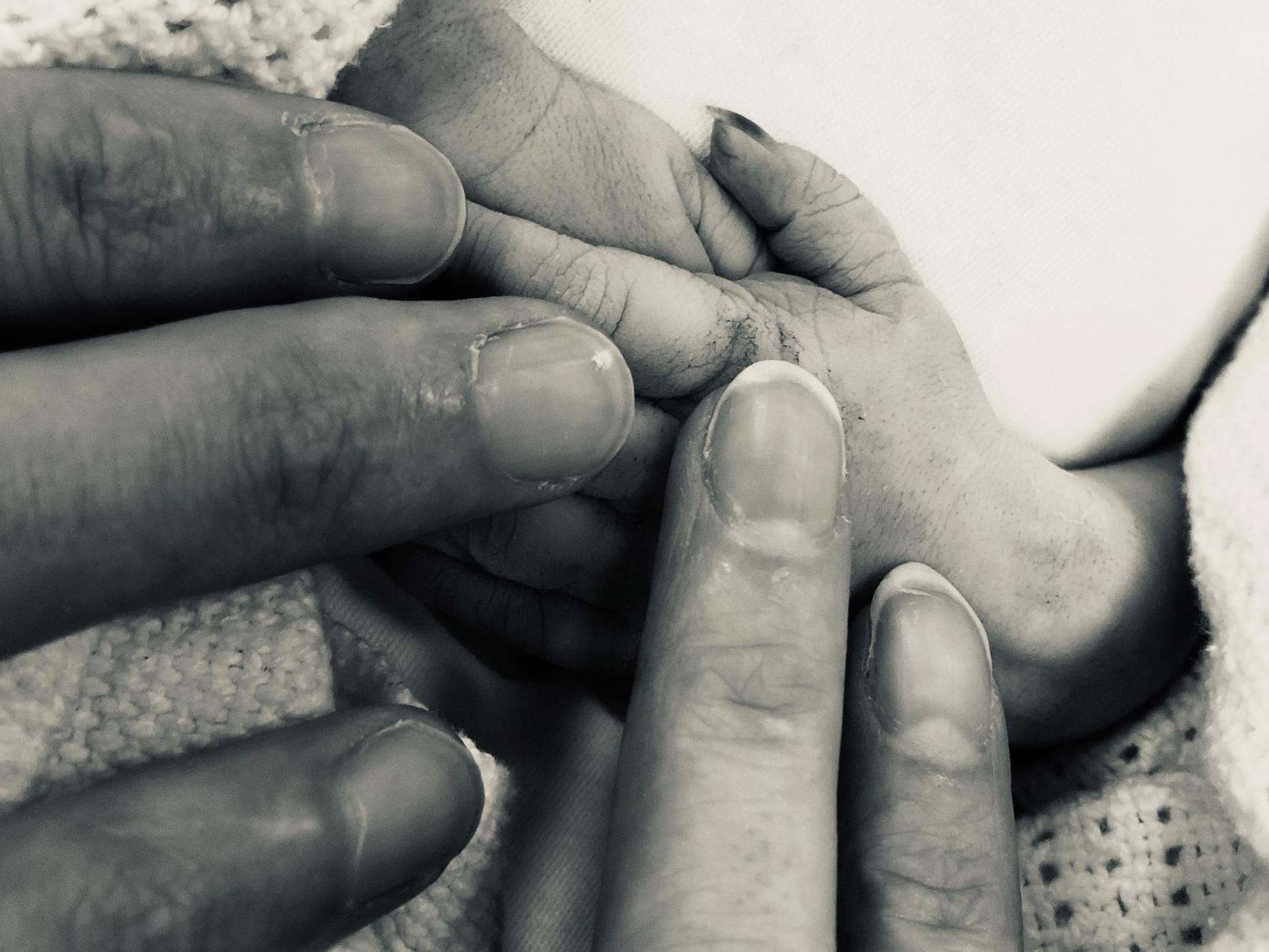I am a mother to a stillborn child: This is my story
Katie Ingram was full-term when doctors told her that her baby’s heart had stopped beating


Your support helps us to tell the story
From reproductive rights to climate change to Big Tech, The Independent is on the ground when the story is developing. Whether it's investigating the financials of Elon Musk's pro-Trump PAC or producing our latest documentary, 'The A Word', which shines a light on the American women fighting for reproductive rights, we know how important it is to parse out the facts from the messaging.
At such a critical moment in US history, we need reporters on the ground. Your donation allows us to keep sending journalists to speak to both sides of the story.
The Independent is trusted by Americans across the entire political spectrum. And unlike many other quality news outlets, we choose not to lock Americans out of our reporting and analysis with paywalls. We believe quality journalism should be available to everyone, paid for by those who can afford it.
Your support makes all the difference.One in four pregnancies will end in miscarriage and nine babies are stillborn every day in the UK, yet there is still enormous taboo around speaking openly about experiencing pregnancy loss. Baby Loss Awareness Week 2019 takes place from Wednesday 9 October to Tuesday 15 October. Each day, The Independent will be publishing a new story to shed light on people’s experiences.
In April 2019 I became a mother to a little girl, Ottilie Eve Ingram.
My husband and I had waited a long time to become parents. We didn’t find each other until I was in my early thirties and then, after years of tests, scans and “waiting to see what happens”, we finally had the enlightening diagnosis of unexplained infertility. Six years after we married, we fell pregnant from our second round of IVF.
My pregnancy went well, I was healthy and active and felt good throughout it. I was so desperately happy to be pregnant at all that I never saw any reason to complain about aches and pains or my wriggly little baby using my bladder as a trampoline.
A combination of my age (I turned 41 in March) and the IVF conception meant that I was monitored as a high-risk pregnancy. A few extra scans raised some small concerns but essentially, all was well. At 39 weeks pregnant we arrived bright and early at the hospital to be induced; we were about to become parents.
But from the first bedside scan that morning it quickly became clear that something wasn’t right. We were moved to a side ward and, as I lay on a bed surrounded by concerned looking doctors and midwives, we were told something we had never even considered: her tiny heart had stopped beating.
The quietness of the moment was deafening. You might imagine a raised alarm, a big red button pushed, a crash team racing in to save my baby. No, there were no sirens. No sound of footsteps rushing to our aid, only the sound of silence would define this moment forever. Our baby could not be saved.
We didn’t know she was a she until later that evening. I had a caesarean section and afterwards, as I held the most beautiful thing I had ever seen in my life in my arms, I asked our midwife if she knew the colour of the baby’s eyes.
“No,” she gently replied. “She will never open them”.
I realised then that I would never know the colour of my daughter’s eyes, that I’d never know the sound of her cry – never feed her, change her or read her a bedtime story
This sentence opened the door to a deluge of grief. I realised then that I would never know the colour of my daughter’s eyes, that I’d never know the sound of her cry; never feed her, change her or read her a bedtime story. I am her mother but I will never mother her.
The trauma of being told your baby has died is just too huge to process. An avalanche of questions burst through my brain as I tried to make sense of what we were being told. How, why, when, what next?
We were given a support pack from the Sands charity within an hour of the final scan. The brutal reality of what we were facing was presented to us via pamphlets titled “Deciding about a post-mortem examination” and “Deciding about a funeral for your baby”. The next few weeks of our lives were starkly laid out.
When I felt strong enough, we left the hospital. We had spent as much time as we could with our precious, silent girl. Our families had seen her too, kissed her head and tweaked her nose as if she were sleeping. We all marvelled at her huge feet and long legs.
The blossom had burst into life on the trees outside whilst we had been dealing with our unimaginable loss. We took comfort from the trees lining our path home with blush pink petals, we breathed in the air and felt the presence of Ottilie in the warmth of the sun.
Going through the motions of real life felt so futile in those early days. There seemed little point without her. Together we found a routine we didn’t want but needed in order to gain structure when everything else felt so out of our control.
We breathed in the air and felt the presence of Ottilie in the warmth of the sun
I clung to the safety of our home in the hope that maybe someone would call and tell me there had been a mistake. Every morning the ordeal of remembering that our baby had died repeated itself. We both had nightmares.
Two nights before her funeral we rounded the corner of our high street and I realised with a crushing wave of grief that our baby girl was laying in the funeral parlour we were approaching. I couldn’t breathe as I thought about her there, without me. I felt like a bad mother for forgetting where she was. I felt like I had let her down, again. It brought into sharp focus that I was never going to hold her again.
The admin of death is always awful. Funeral planning, registering, informing everyone is hard. It’s harder still when you are making choices for a baby who never drew breath. The pain is acute and decisions we found ourselves making were impossible to imagine. How intrusive do we want the post-mortem to be? Not at all, but we need to know why. Do we want a burial or cremation? Neither, but you have to choose one. Which plot at the burial ground do we like? None of them; I want to tuck our baby in at night not visit her grave.
Along this road we kept meeting people who chose to share their own experiences with us. Some we knew and others we didn’t but they wanted to show solidarity in our pain: “It happened to me too.” I gradually began to realise that although I felt so isolated by our loss I was far from alone.
I clung to the safety of our home in the hope that someone would call and tell me there had been a mistake
Every day in the UK about 15 babies die before, during or just after birth. In the four days I was in hospital, 60 other families in this country heard the same awful news I did. When we registered the stillbirth of Ottilie our registrar told us that he too was a parent to a stillborn child.
Almost six months on, we are both feeling stronger. We are both back at work navigating the good days and the bad as we try to make sense of our lives without Ottilie. We have moved on from taking each hour as it comes, to each day. Occasionally, we are met by well-meaning questions about our baby from people who haven’t yet heard our news: the dentist, the barber, the distant colleague – and when we are, the grief can catch us off-guard.
But mostly, the waves of grief come less often, the nightmares don’t haunt us every single night and we are gradually beginning to find our “new normal” without Ottilie; changed forever by our experience. I just hope that telling our story provides a small glimmer of support for parents going through what we have. Nothing will bring our baby back but perhaps talking about our experience can help someone else to feel less alone.
If you have been affected by any of the issues raised in this article, you can contact stillbirth and neonatal death charity Sands on 0808 164 3332 or email helpline@sands.org.uk. The helpline is open from 9.30am to 5.30pm Monday to Friday, and until 9.30pm on Tuesday and Thursday evenings
You can also find bereavement support at The Lullaby Trust by calling 0808 802 6868 or emailing support@lullabytrust.org.uk
Join our commenting forum
Join thought-provoking conversations, follow other Independent readers and see their replies
Comments